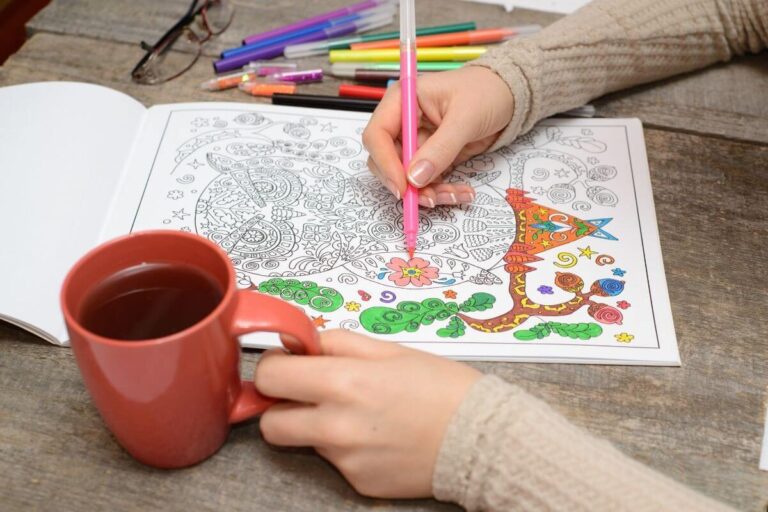15 Everyday Habits Between Friends That Quietly Spark Rivalry
Friendships often bring laughter, comfort, and adventure. Yet, certain habits can unintentionally turn friendly bonds into subtle rivalries.
You might not even realize how certain behaviors can create tension or rivalry in your relationships.
Competing over workout progress

You might start comparing the number of reps or how fast you both run. It feels motivating at first, but soon it turns into a silent contest.
You check your friend’s progress photos and secretly wonder if you’re catching up. This shifts the focus from personal growth to competition.
Comparing personal achievements constantly
When you and your friend keep comparing your successes, it can spark competition. Every small win becomes a challenge to top the other person.
This habit can make your friendship feel more like a contest than a celebration. Instead of feeling proud together, you start measuring who’s ahead.
One-upping each other’s travel stories
You start sharing your amazing trip, describing breathtaking views and unique experiences. Then your friend jumps in, trying to outdo every detail with their own tales.
It can feel like a competition rather than a conversation. You might find yourself comparing every destination, hotel, or adventure instead of enjoying the story.
This back-and-forth can steal the joy from sharing. Instead of celebrating each other’s travels, it becomes a contest of who went further or did more.
Subtly bragging about mutual friends
You might catch yourself mentioning the cool things your mutual friends do, but it can accidentally spark competition. When you highlight their achievements, it can feel like you’re trying to one-up your friend, even if that’s not your intent.
It’s easy to slip into name-dropping to impress each other. But focusing too much on mutual friends’ successes can make the friendship feel like a contest.
Rushing to announce relationship milestones
You might feel thrilled to share your relationship news as soon as something happens. It’s natural to want to celebrate your happiness with friends.
But when you rush to announce milestones like moving in together or getting engaged, it can unintentionally spark competition. Your friends might feel pressured to match or outdo your news quickly.
Matching new gadgets first

You know that thrill when you get the latest phone or smartwatch before anyone else? It feels awesome! But when your friend instantly gets the same gadget, it can turn into a silent competition.
Suddenly, it’s about who uses it better or who shows it off more. You might find yourself comparing apps, accessories, or settings without even realizing it.
Casually dropping salary hints
You might think sharing your salary casually is just harmless conversation. But when you mention your earnings, it can spark competition without you realizing it.
Your friends may start comparing their salaries to yours. This can create tension or awkwardness, even if nobody says it outright.
Sometimes, dropping salary hints can make others feel pressured to match or beat your income. It turns what should be supportive friendships into subtle contests.
Trying to outdo each other’s party planning
You start planning a fun get-together, wanting to make it special. Then your friend jumps in with a bigger, flashier idea. Suddenly, it feels like a competition rather than a celebration.
You want your party to be memorable, so you add extravagant touches. Your friend matches or exceeds each detail. It shifts the focus from enjoying time together to trying to one-up each other.
Outshining each other’s cooking skills

You start sharing recipes, and suddenly it feels like a cooking contest. Every dish you make becomes a chance to impress.
When your friend tweaks a recipe, you find yourself doing the same. It’s fun, but it can turn competitive fast.
You might think posting your best moments is just sharing, but it can spark a silent contest. Suddenly, you start watching the likes on your friend’s posts more closely than your own.
When you find yourself refreshing your page, hoping your photo gets more love, that’s competition creeping in. It’s easy to forget the fun and focus on numbers instead.
Competing over who has the busiest schedule
You might catch yourself bragging about how packed your days are. When you and your friends do this, it can turn into an unspoken contest. Everyone wants to prove they’re busier or more important.
This can make you feel like your time is more valuable than theirs. Suddenly, simple hangouts become rushed or pushed aside.
Trying to top each other’s music tastes
You might start sharing your favorite songs with your friend, hoping to impress them. Then it becomes a subtle battle to show who has the more unique or “cooler” playlist.
Each new artist or genre you introduce feels like a friendly challenge. You catch yourself scanning their reaction, looking for approval or surprise.
Subconsciously showing off academic success
You might find yourself casually dropping your grades or awards in conversation without realizing it. When you do, it can create an unspoken competition between you and your friends.
Mentioning your achievements can make others feel pressured to match your success. Even if that’s not your intention, it can shift the vibe from supportive to competitive.
Debating whose pet is the cutest

You might think sharing stories about your pet is just fun, but it often sparks competition. When you start comparing adorable photos or feats, it turns into a silent contest of who has the cutest pet.
Your enthusiasm is natural, but constantly trying to outdo each other with pet cuteness can feel competitive without meaning to.
Racing to buy the latest fashion trends
Sharing your excitement about new styles can spark unspoken competition. Suddenly, it’s not just about liking clothes—it’s about who gets them first.
When you and your friend rush to grab the latest trend, it feels like a race. The thrill can turn into pressure to keep up.
You may start comparing who spends more or who looks better in the new fashion. This silent contest turns style into a scorecard.







